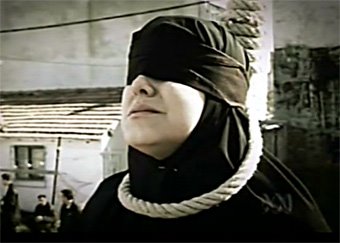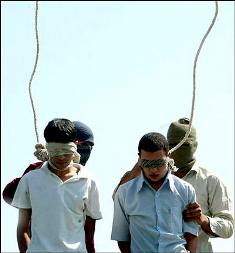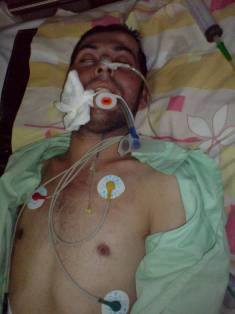BERLIN – Iran executed 670 people in 2011, including more than 20 for offenses against Islam, a UN investigator said in Geneva on Monday.
The vast majority of people Iran executed in 2011 were convicted of drug offenses that do not merit capital punishment under international law, former Maldives foreign minister and current UN investigator Ahmed Shaheed said.
He also reported a wide range of violations by Iran of UN human rights accords, from abuse of minorities to persecution of homosexuals and labor unions.
Shaheed was delivering his first report to the UN’s 47- nation Human Rights Council on the rights situation in the country since being appointed last year. Tehran dismissed it as a “compilation of baseless allegations.”
“It is with great concern that I report the significant increase in the rate of executions in Iran from 200 in mid-September 2011 to over 600 executions by the end of the year,” Shaheed told the council.
By December 31, 421 executions had been announced and 249 secret ones had been reported to him by sources inside and outside the country.
Iran’s persecution of Pastor Yousef Nadarkhani, who has been sentenced to death for creating a home-based church and questioning compulsory Islamic education for his children, surfaced in Shaheed’s statements.
In a report on the website of the Washington-based American Center for Law & Justice, Tiffany Barrans, the group’s international legal director, who is in Geneva, wrote while Shaheed did not mention the pastor’s case in his new report, he had urged Iran’s authorities to consider the release of “Pastor Yousef Nadarkhani who has been sentenced to death for apostasy....”
Ben Cohen, who has written about Nadarkhani’s case in the US media, wrote in an email to The Jerusalem Post, “It’s certainly encouraging that there’s a growing international awareness of Pastor Nadarkhani’s case, as well as a growing consensus among democratic nations that his immediate release is essential.”
Cohen, who jump-started a media project on the plight of Christians in the Middle East, wrote, “The Iranian regime wants to prove that it can be responsive to outside concerns, they should heed these calls. Sadly, Tehran’s record up to now is hardly cause for confidence.”
Giulio Meotti, an Italian journalist and expert on Christians in the Muslim world, wrote the Post by email, “After North Korea, Iran is the global leader in Christians’ persecution. Iran is committing a cultural genocide, a tabula rasa of anything is non-Islamic. But more shameful is the silence of the Western democracies, the NGOs and the institutionalized churches about the extinction of Christianity in the Middle East.”
Meotti, who is a journalist with Il Foglio and is working on a book on Israel and the Vatican, said, “The West should organize a campaign of political pressure with all the means it has. But I fear that Eastern Christians, along with the State of Israel, have been chosen as the sacrificial lamb of Western greed.”
The UN Human Rights Council established Shaheed’s office and mandate last year, in a narrow vote, when Western and Latin American countries, with some African support, cooperated to create a special investigation on Iran. Cuba, Russia, China and others opposed the resolution.
Iran has refused to allow him into the country. In the council on Monday it described him as “incompetent.”
Shaheed, a veteran diplomat and founder of a human rights institute in the Maldives, said he had received videotaped testimony from witnesses to torture by Iranian security police and from relatives of young people who had been held in jail.
He told a news conference that were strong indications that many Iranians officially executed for drug offenses had originally been arrested for resisting the regime or similar offenses and had the narcotics charges added later.
A table in his report showed executions, a sentence that can also be handed down in Iran for homosexual relationships, had soared steadily to near 700 from just under 100 in 2003. In 2010, there were around 550 executions. Iran’s Lesbian, Gay, Bisexual and Transgender community has been decimated by the regime.
Shaheed told journalists he hoped the council would vote to extend his mandate, originally set for one year, next week at the end of its month-long session. Diplomats say the outcome of a vote is likely to be close.
“One of the most important aspects of this mandate is its capacity to give voice to those that believe themselves to be silenced by fear and lack of recourse,” he said.
Kenneth Sikorski, a Helsinki-based writer who has written about the repression of Christians in Muslim-majority countries on his website Tundra Tabloids, wrote the Post, "In light of the Finnish newspaper, the Helsingin Sanomat's main article on Sunday, promoting the Tehran regime's propaganda that religious minorities in Iran live in relative peace, I would call on the EU and the US to submit a joint motion before the UNGA/UNSC for a vote for sanctions against Tehran, with the sole intention of bringing to the international media's attention of this man's plight."




























































